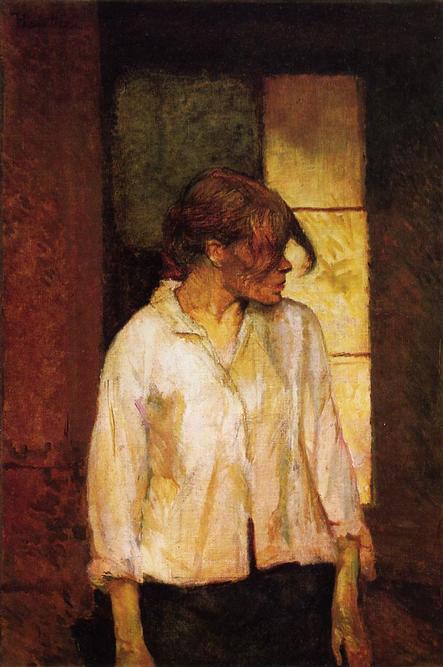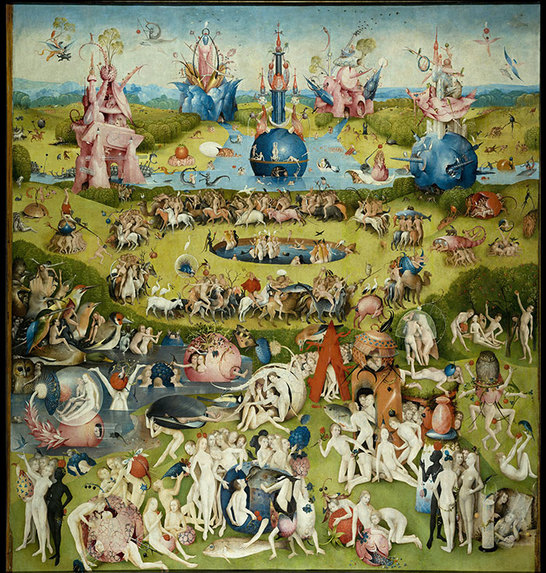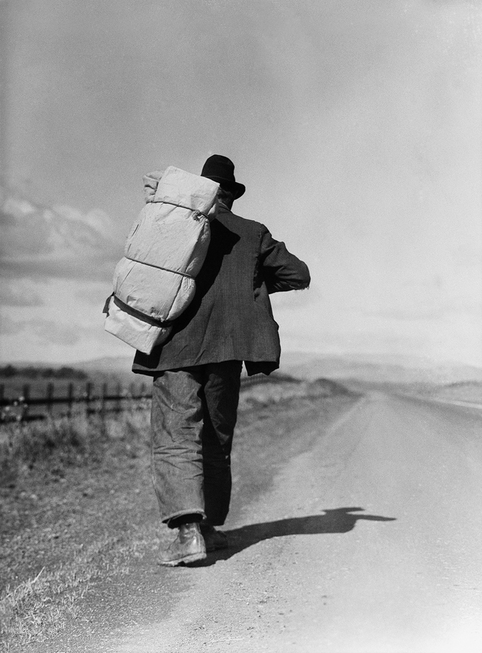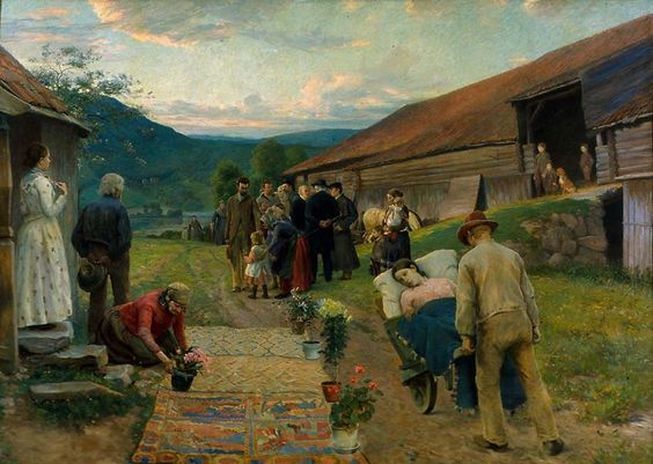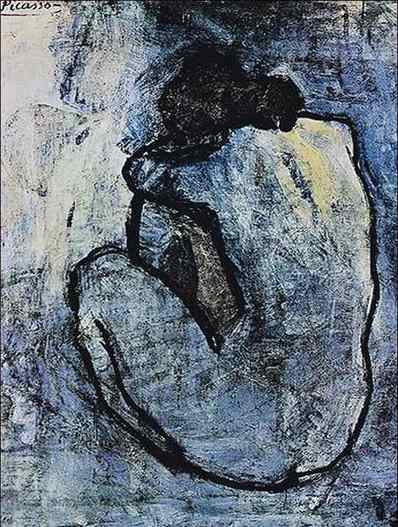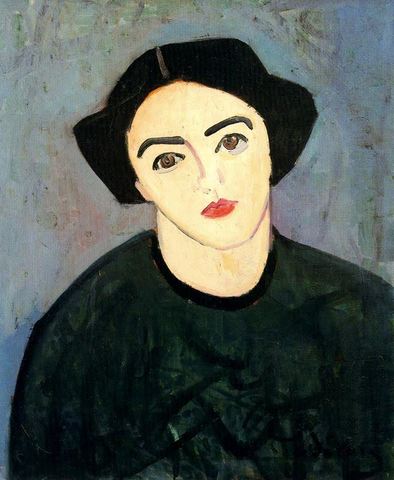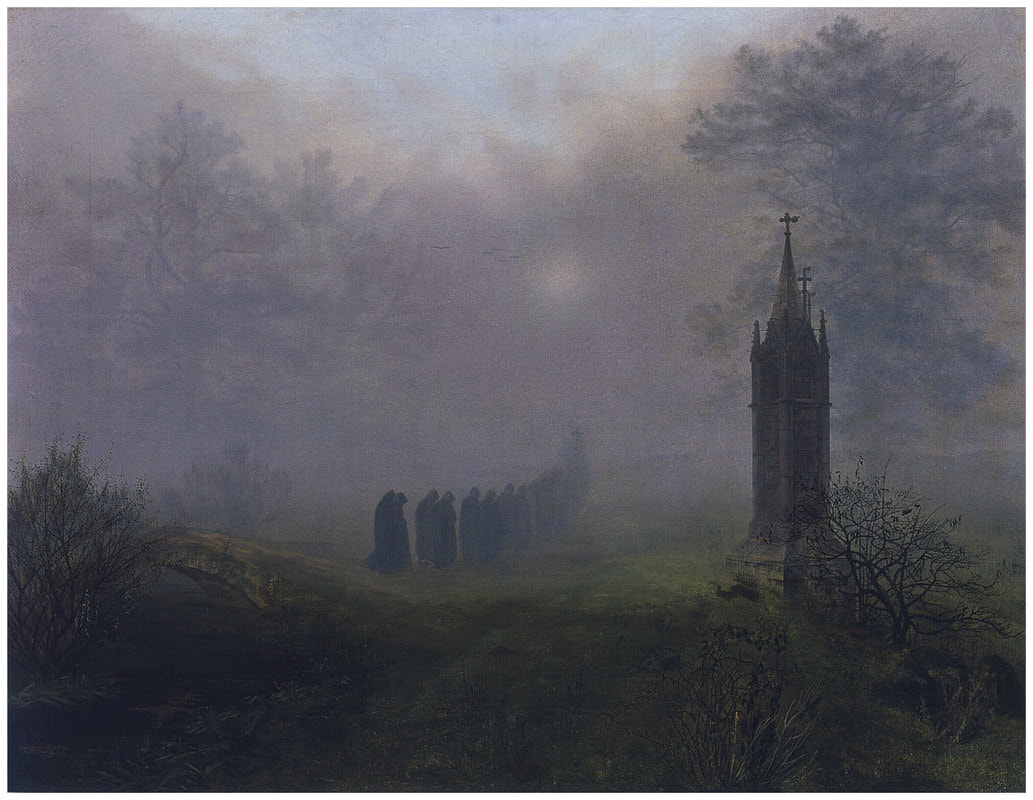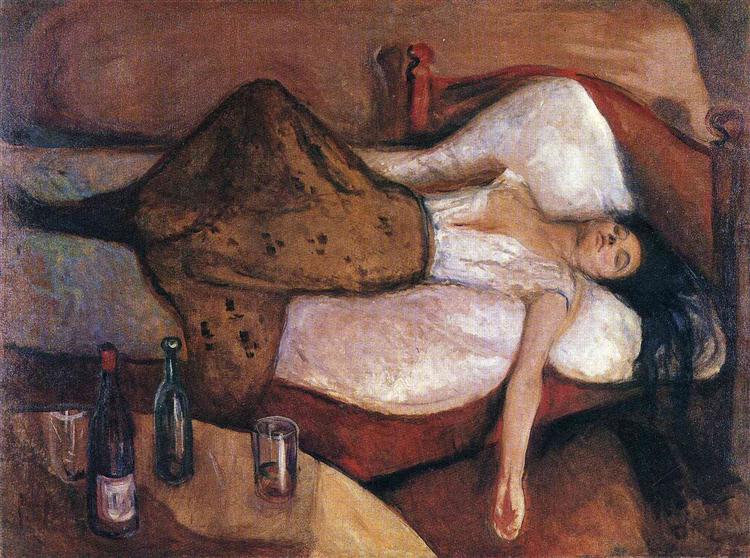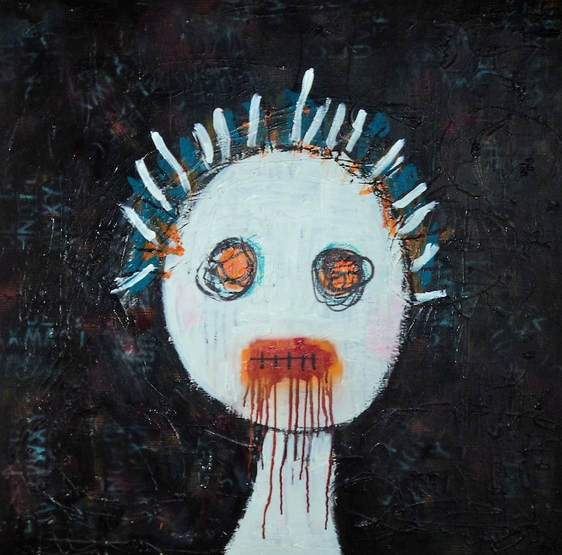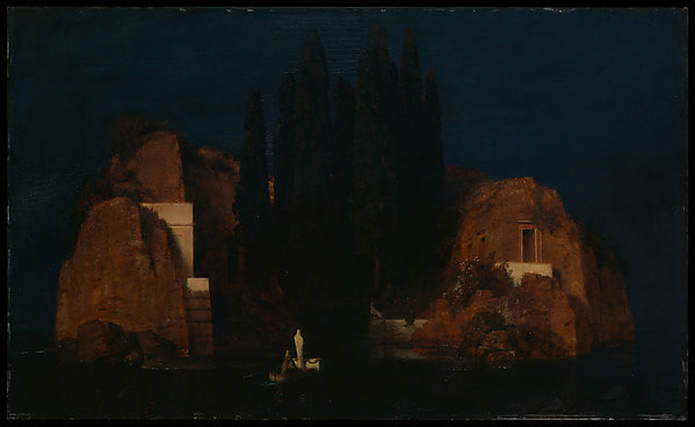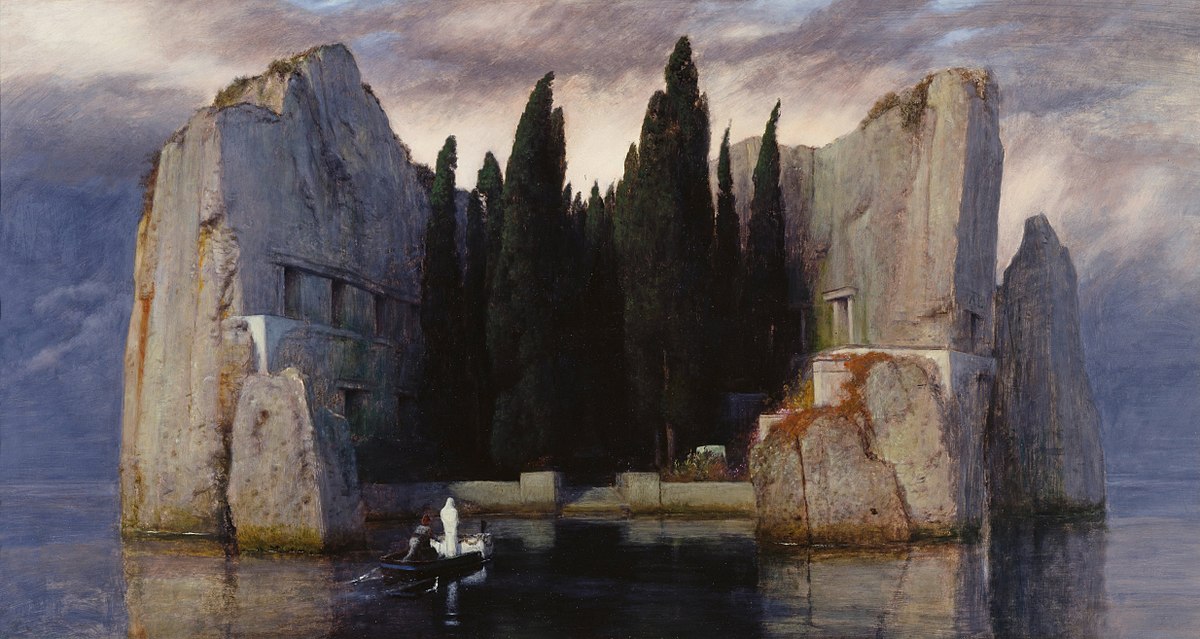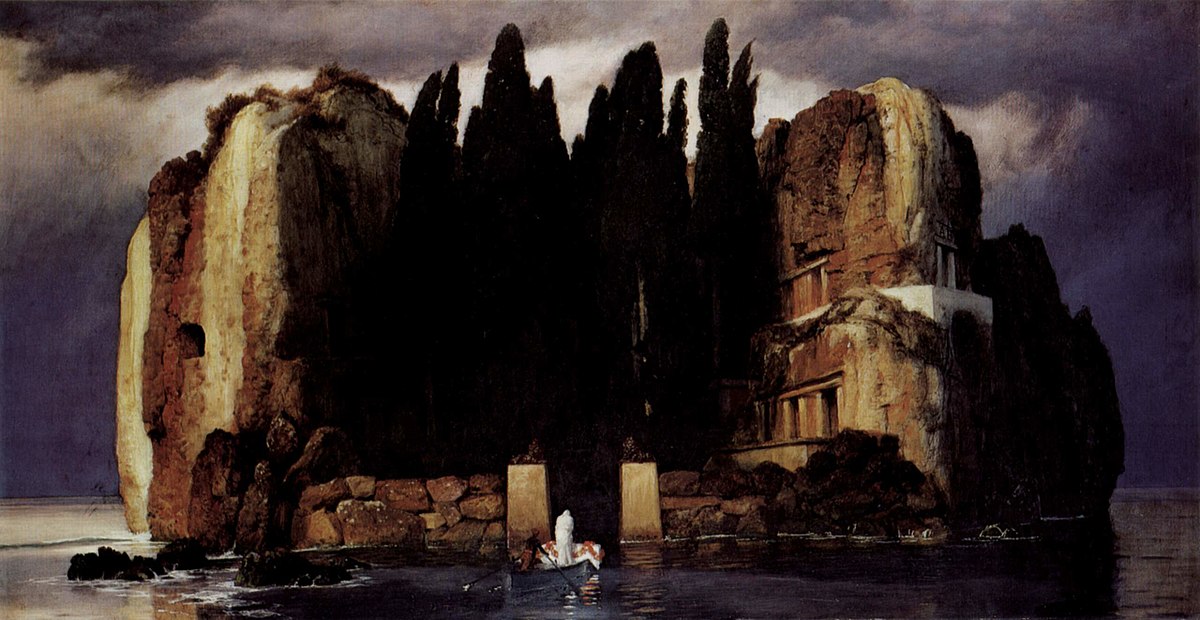|
Rosa
Here stands Rosa, the slope-shouldered laundress, orange hair veiling one eye. She poses in a shabby, half-buttoned blouse, calloused fingers droop near solid hips. Rosa is finished for today, scrubbing the sheets, the shirts, the trousers of the rich. She has nothing left to lose. Henri, haunted by this jaw-jutted whore, could not let Rosa go, and so he kept her close on canvas, painted her with fevered strokes, even as she trolled the dark and dizzy streets of Montmartre, savored his absinthe, shared her stained mattress, shared the strain that would bury the artist at thirty-six. Rosa now holds court, eternally framed in this tony gallery where well-heeled patrons cock their heads and appraise Henri’s girl as they sip their catered sherry. Irene Fick Irene Fick: "I live in Lewes, Delaware and am active in two local writers’ groups - where I’m involved with free writes, readings, classes and critique groups. My poetry has been published in such journals as Poet Lore, Gargoyle and Mojave River Review. My first chapbook , The Stories We Tell, was published in 2014 by The Broadkill Press and earned a first place award (book of verse) from the National Federation of Press Women. I generally write narrative poetry, and the attached is a departure for me."
0 Comments
In The Garden of Earthly Delight
Despite the title no one looks delighted. The lovers float, impassive, in their glass alembic. Others reach toward unwieldy fruit they never seem to taste. Legs and bodies dangle or dance heads and torsos swallowed by huge berries or the hollow bodies of dead fish. Women stand in a still pool circled by a strange parade of horned and antlered animals ridden by pale homunculi. There are so many blades and edges to threaten naked flesh horns and spikes and skewers needles and knife points everywhere the borders lined with rows of sharp beaked birds large enough to pluck up these mannikins like worms who were so foolish to forget this garden’s just one fold away from hell. Mary C McCarthy Mary C McCarthy has always been a writer, but spent most of her working life as a Registered Nurse. She has had work included in many on line and print journals, including Gnarled Oak, Third Wednesday, The Evening Street Review, Expound, and Earth’s Daughters. She spends her time on writing and drawing, and has high hopes for a better world, despite the daily news, filled with reports of war and other calamities. Migrant Worker on California Highway
Caught in mid-step with many more to go. A hat to shade him from the sun. This man is carrying everything he owns over his left shoulder. Soon he will shift the bundle to the other shoulder. Dust settles on his clothes, his face, in his nose. Only a worn handkerchief in his back pocket to wipe away sweat. Soon he will shift the bundle to the other shoulder. Perhaps a car will come by, but they are usually laden with belongings and numerous children. He’s getting hunched from bending to crops, longs for the reach of apples and peaches, the shade of the trees. He doesn’t mind lying beneath the stars, the sounds of the insects. He’ll sleep from exhaustion, and dream. It is then the lost ones will return, picking up in mid-sentence. Gail Peck Gail Peck is the author of eight books of poetry. The Braided Light won the Leana Shull Contest for 2015. Poems and essays have appeared in Southern Review, Nimrod, Greensboro Review, Brevity, Connotation Press, Comstock, Stone Voices, and elsewhere. Her poems have been nominated for a Pushcart, and her essay “Child Waiting” was cited as a notable forBest American Essays, 2013. Wax Mother
Another wax mother passes by Grey ashen wax Warmth and flame Extinguished. When will it be mine? When will those hands reach My arm to hold me back? Tears weigh me down Cumulonimbus of grief build Where once radiance reigned And childhood held promise Where this village held me Playful and innocent I suffocate in its clasp. Melinda Dewsbury This poem was written for the surprise ekphrastic I See a Darkness challenge. Melinda has been in love with beauty and the beauty of words since she can remember. She grew up in rural Ontario among the rhythms of the agricultural cycle and now lives in Langley, BC, where she teaches writing, literature, and linguistics at Trinity Western University. Although she has written poetry for decades, she has not yet taken the great leap into sharing it publicly. These poems, written as part of the surprise ekphrastic I See a Darkness challenge, mark the first time. Blue she almost disappears completely into the (sadness, depression, isolation) what we like to simply call blue until we have frozen her solidly curled up in protection her body a swirl an exhale of carbon dioxide crystalized then vaporized then gone Lisa Stice Lisa Stice is a poet/mother/military spouse, the author of Uniform (Aldrich Press, 2016), and a Pushcart Prize nominee. While it is difficult to say where home is, she currently lives in North Carolina with her husband, daughter and dog. You can learn more about her and her publications at lisastice.wordpress.com and at facebook.com/LisaSticePoet. Faces
In this city it is the measure of a lady's face that matters. Not the lift of her shoulders or the length of her legs. Only the distance between cheek and jaw and the spacing of the eyes determines a lady's success. There are no river taxis in this city and we must assort ourselves on the damp benches, pull fragile looking-glasses from handbags, and take measure of our gaze while casting envious glances at the circling river birds always overhead. At night many of the women use a husband's ties to bind their faces painfully tight. So much pain . . . . I must keep my thoughts quiet for it is impossible to live on the wrong side here. Surely more attention should be paid to a woman's breasts, or a well turned ankle, or sleek thigh. Many are aware of this truth I feel sure, but today all the society columns and even whispered gossip must never mention any feature but the face. I keep my plans of escape well-hidden and only take them out at night to write detailed instructions to my future self. Meanwhile I carry a camera in the large pocket of my sweater and take surreptitious photos of the pain in the eyes of the ladies. When I am free and living in another city I will show these photos to my own daughter and she will hurry to the window and cast her love out over the beautiful city with no rivers only wide streets with pristine sidewalks full of contented faces smiling like wildflowers on a hillside, a city in which countenances are free to take their own shape and people who should hang shall be hung. John Riley John Riley lives in North Carolina, where he works in educational publishing. His fiction and poetry have appeared in several print and electronic journals, including SmokeLong Quarterly, Connotation Press, Willows Wept Review, Loch Raven Review, Dead Mule, and Blue Five Notebook. He can be reached at [email protected]. Undertaker
He is waiting. There is no hurry. Exhalations push against life drag youth from bones displace oxygen fog on life’s unfinished canvas. His stench paints over hope’s joy. He has already claimed it. There is no hurry. Melinda Dewsbury This poem was written for the surprise ekphrastic I See a Darkness challenge. Melinda has been in love with beauty and the beauty of words since she can remember. She grew up in rural Ontario among the rhythms of the agricultural cycle and now lives in Langley, BC, where she teaches writing, literature, and linguistics at Trinity Western University. Although she has written poetry for decades, she has not yet taken the great leap into sharing it publicly. These poems, written as part of the surprise ekphrastic I See a Darkness challenge, mark the first time. But the Moon is Vulnerable
She casts her best shadows on naked skin, her unformed before patterning the afterward with stories from the empty dark, her angst dissolving in the comfort of her own transience. But the moon is vulnerable in my bed. Let’s sit at the table, she says, this wine turns to viscous ebony at a touch, untethering stories too harsh for the afternoon sun. Remembering is a game of faded horizons and soft lips, slaughtering hearts on chequered silver and night. We hold love softly, in the palm of our regrets, gravity gyrating against the rising wind, breath still heaving through the twisted loop of infinity, dreams travelling to the seams of impossible want. The morning found her, my answers still trapped like stars behind her sleeping eyes. They say where she had lain alone, the air still smells of watered rosebuds, the blemished light still pools on the floor where it dripped slowly from her outstretched hand. Rajani Radhakrishnan Rajani Radhakrishnan: "I am from Bangalore, India and post my work on thotpurge.wordpress.com. Some of my poems have recently appeared in online platforms such as The Lake, Quiet Letter, Visual Verse and Parentheses Journal." A Lesson in Philosophy
I am Plato’s cave Words void Cacophonous silence Meaning wrung out Squeezed Emptiness spills Pulled by gravity Scraping away layers of self. Now I see but a poor reflection. Dare I turn around? Melinda Dewsbury This poem was written for the surprise ekphrastic I See a Darkness challenge. Melinda has been in love with beauty and the beauty of words since she can remember. She grew up in rural Ontario among the rhythms of the agricultural cycle and now lives in Langley, BC, where she teaches writing, literature, and linguistics at Trinity Western University. Although she has written poetry for decades, she has not yet taken the great leap into sharing it publicly. These poems, written as part of the surprise ekphrastic I See a Darkness challenge, mark the first time. Pareidolia
Some say Böcklin dreamt the Isle of the Dead and spent the rest of his life trying to paint it. Some say each snowflake sets out to reproduce a dreamflake, but the clouds are careless copyists. Nabokov said the Isle on a wall is part of every Berlin home, like a roof or running water. Maybe Böcklin’s dream is dreamt by each of us, even if they’re his initials on the cave-tomb’s door. Maybe I dreamt a poem once, at least its contours, and have spent the rest of my life trying to write it. Maybe every poem is really the same elegy, the same suicide note, reflected in a shattered funhouse mirror, leaving you, me, anyone to pick up the pieces. Each pearl conceals a grain of sand—but try to find it. Of course, Böcklin didn’t paint and repaint the Isle to realize his undying fixation, his dream of death, but to satisfy his patrons and their commissions, his landlords and their past-due notices. And maybe this was never about the obsession of the painter, the poet, the clouds, but of each of us and our insatiable hunger for pattern, for meaning. And maybe you can tell me: do we ever find it? Daniel J. Pizappi This poem was written for the surprise ekphrastic I See a Darkness challenge. Daniel J. Pizappi grew up in New York’s Hudson River Valley and currently lives in Knoxville, Tennessee. He is a PhD student, Managing Editor of Grist: A Literary Journal, and co-editor of Kentucky Writers: The Deus Loci and the Lyrical Landscape (Des Hymnagistes Press, 2016). His work has appeared in Your Impossible Voice, Burningword, and The Schawangunk Review. |
The Ekphrastic Review
COOKIES/PRIVACY
This site uses cookies to deliver your best navigation experience this time and next. Continuing here means you consent to cookies. Thank you. Join us on Facebook:
July 2024
|
